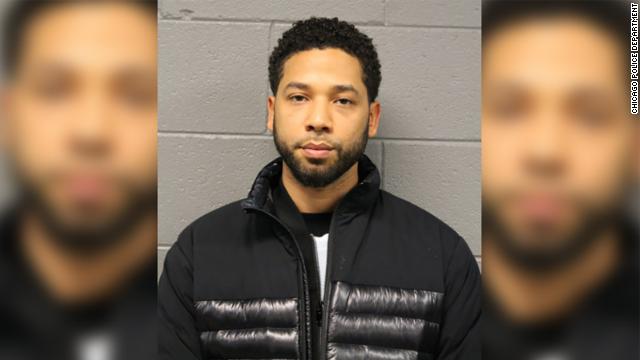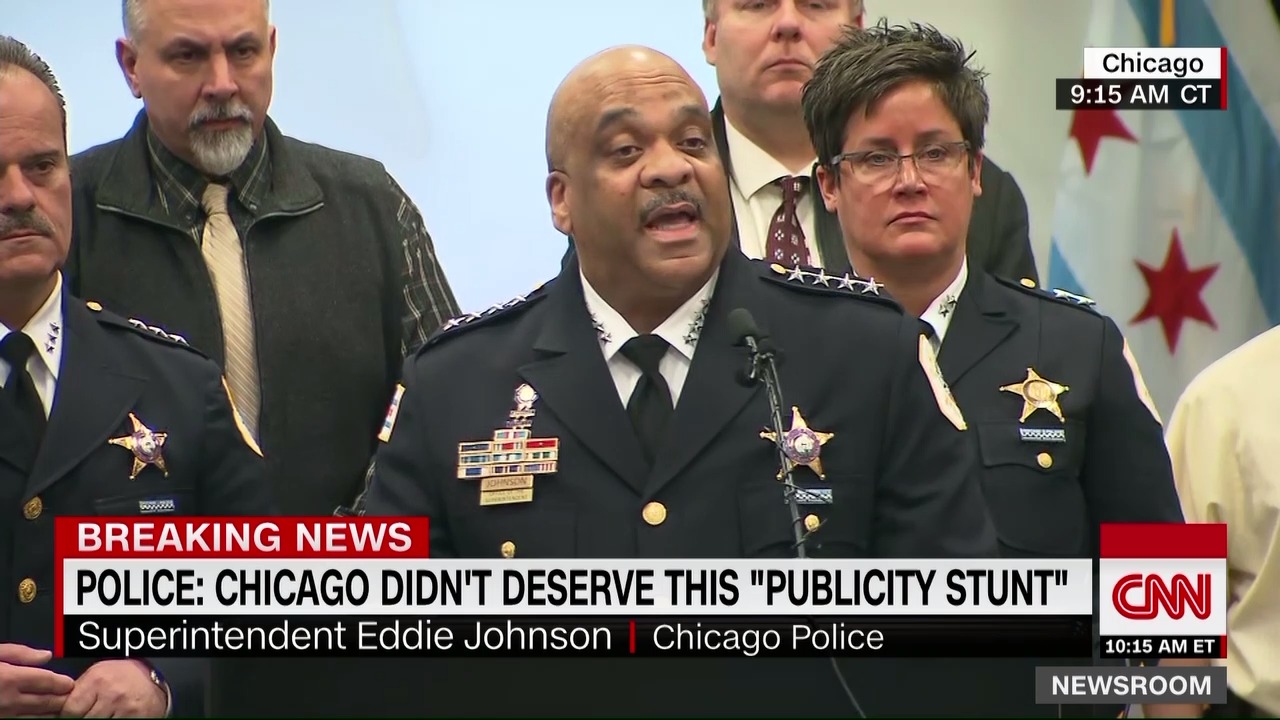
Edward Wodnick, commander of the area central detective division, detailed the Chicago police department's extensive investigation into Jussie Smollett's hate crime allegations.
Here's a brief timeline:
- Morning of Jan. 29: Jussie Smollett reports he was the victim of a hate crime.
- The allegations: Police interview him at the hospital. He says two people yelled racial, homophobic and political statements at him, beat him, put a noose on his neck, threw bleach on him and fled, according to Wodnick. Smollett had scratches on his face.
- The investigation: Police launched a hate crime investigation and found two people of interest on a video. Investigators issued a community alert for information on them and searched the area for cameras and witnesses. They interviewed more than 100 people and found more than 55 cameras. "The city came together to investigate and help the police with this crime," Wodnick said.
- Persons of interest found: After reviewing the cameras, police discovered the alleged offenders fled in a cab, which detectives tracked down. Investigators interviewed the cab driver and got video from the cab. Police tracked their movements to a ride share, and it eventually led them to what "we needed in order to identify the two persons of interest," Wodnick said.
- Suspects arrested: Investigators later learned that they were going to the O'Hare International Airport and were catching a flight to Nigeria. The alleged offenders purchased roundtrip tickets with them returning to Chicago on Feb.13. As police waited for them to return, they issued more than 50 search warrants and subpoenas. Police took them into custody when they reentered the country at US customs.
- "Something smelled fishy": The men's attorney told police that "something smelled fishy" and that "she did not think that they were the offenders as were reported," Wodnick said. She allowed police to give them a video interview and said "she worked with us very, very closely to get to the point where she came to me and said, 'They are not offenders. They are victims,'" Wodnick said.
- No longer suspects: Police worked with the men to get a timeline and document their story. "We were able to substantiate those things," Wodnick said. The men were released and police went to the grand jury.
- The grand jury investigation: Police worked with the state attorney's office and went to the grand jury. The two men instead served as witnesses. Smollett's attorneys contacted police and said they had evidence to postpone the grand jury, Wodnick said. Detectives met with them but they gave no new information, Wodnick said.
- Charges filed: State attorney's office approved a felony charge against Smollett for disorderly conduct for allegedly filing a false police report.
- Today at 6 a.m. ET: Smollett turned himself in.



